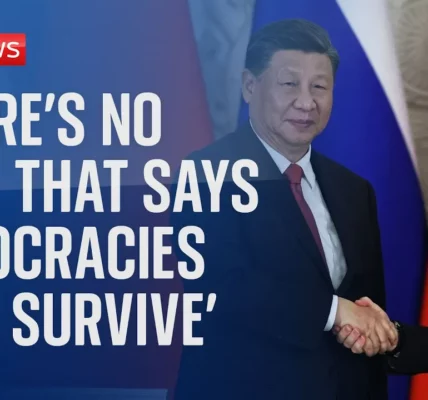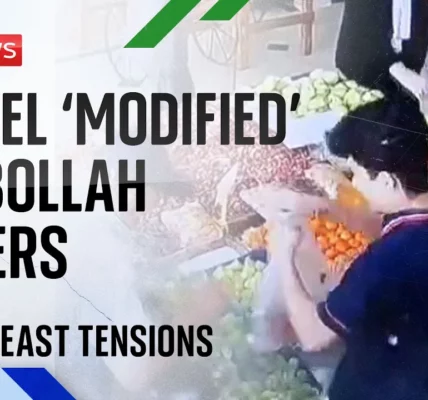Rockets from Lebanon Striking Deeper into Israeli Territory

The ongoing geopolitical tensions, particularly the recent rocket attacks from Lebanon into Israel, have raised critical questions surrounding political integrity and economic policies in the UK, especially against the backdrop of the Labor Party Conference. This article delves into these pressing issues, offering an in-depth examination of the political dynamics at play.
Introduction
The recent escalation in hostilities between Israel and Hezbollah, coupled with the political turmoil surrounding the Labor Party Conference, highlights significant challenges facing both domestic and international landscapes. As rockets from Lebanon penetrate deeper into Israeli territory, political leaders in the UK grapple with their own controversies, particularly regarding the acceptance of gifts and donations. This situation exacerbates the scrutiny on leaders like Deputy Prime Minister Angela Rayner, who faces tough questions amidst a backdrop of economic uncertainty and potential austerity measures.
The Labor Party Conference: A Crucial Moment
The Labor Party Conference is a pivotal event that shapes the political narrative in the UK. Amidst discussions of economic recovery and public spending, the conference has been overshadowed by controversies involving party leadership and ethics.
Angela Rayner Under Fire
Angela Rayner, the Deputy Prime Minister, has found herself at the center of a storm regarding her acceptance of gifts and the implications of such actions on public trust. The scrutiny she faces reflects broader concerns about transparency and accountability in politics.
Economic Policy Discussions
Rachel Reeves, the Chancellor, is under increasing pressure to navigate a complex economic landscape. As unions express dissent over proposed cuts to winter fuel payments, Reeves must balance fiscal responsibility with the needs of vulnerable populations.
- Retired members of the United Union plan protests at the conference.
- Concerns over austerity measures spark debates within the party.
- Calls for protecting winter fuel allowances resonate strongly among attendees.
The Economic Climate: A Call for Caution
The economic context in which the Labor Party operates is fraught with challenges. The specter of austerity looms large, with many party members cautioning against a return to such measures.
Fear of Economic Ruin
There is a palpable tension within the party regarding the potential economic strategies that may be employed. Rachel Reeves has indicated that significant decisions must be made to stabilize public finances, with warnings that failure to act could lead to economic ruin.
Public Sentiment and Party Unity
As the party navigates these treacherous waters, public sentiment plays a crucial role. Many constituents who supported Labor in the last election are beginning to express discontent over perceived betrayals regarding spending cuts and austerity rhetoric.
- Increasing dissatisfaction among pensioners and vulnerable groups.
- Risk of alienating centrist voters within the party.
- The potential rise of far-right factions capitalizing on labor discontent.
The Escalating Conflict in the Middle East
While domestic politics dominate the headlines, the situation in the Middle East, particularly the conflict between Israel and Hezbollah, requires urgent attention. Recent events have raised alarms regarding the possibility of a broader regional conflict.
Hezbollah’s Strategic Moves
Hezbollah’s actions signify a strategic alignment with Palestinian interests, leading to increased tensions along the Israeli-Lebanese border. The potential for escalation into all-out war is a growing concern for international observers.
International Reactions and Implications
The international community has responded with calls for de-escalation, yet the situation remains volatile. Israeli Prime Minister Benjamin Netanyahu’s statements reflect a hardening stance that could further inflame tensions.
- UN warnings of potential humanitarian crises in the region.
- Calls for a ceasefire and diplomatic resolutions have been largely ignored.
- Concerns regarding the impact of regional instability on global security.
Conclusion
The intersection of domestic political strife and international conflict underscores the complexities facing today’s leaders. As the Labor Party grapples with its internal challenges, the escalating situation in the Middle East serves as a stark reminder of the broader implications of political decisions. Moving forward, it is crucial for leaders to prioritize transparency, accountability, and ethical governance to restore public trust and address the pressing issues at hand.
For more insights into the ongoing political developments and their implications, explore our related articles on the Labor Party’s economic policies and the geopolitical landscape in the Middle East.
“`




